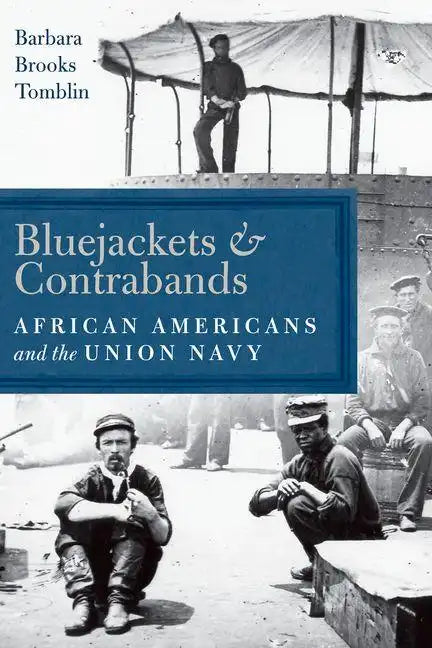Bluejackets and Contrabands: African Americans and the Union Navy - Hardcover
Bluejackets and Contrabands: African Americans and the Union Navy - Hardcover
Couldn't load pickup availability
by Barbara Brooks Tomblin (Author)
One of the lesser-known stories of the Civil War is the role played by escaped slaves in the Union blockade along the Atlantic coast. From the beginning of the war, many African American refugees sought avenues of escape to the North. Due to their sheer numbers, those who reached Union forces presented a problem for the military. Fortunately, the First Confiscation Act of 1861 permitted the seizure of property used in support of the South's war effort, including slaves. Eventually regarded as contraband of war, the runaways became known as contrabands. In Bluejackets and Contrabands, Barbara Brooks Tomblin examines the relationship between the Union Navy and the contrabands. The navy established colonies for the former slaves, and, in return, some contrabands served as crewmen on navy ships and gunboats and as river pilots, spies, and guides. Tomblin presents a rare picture of the contrabands and casts light on the vital contributions of African Americans to the Union Navy and the Union cause.
Front Jacket
Bluejackets and ContrabandsAfrican Americans and the Union NavyBarbara Brooks Tomblin
Despite the wealth of information published on the Civil War, the role played by escaped slaves in the Union blockade along the Atlantic coast has been largely overlooked. In Bluejackets and Contrabands, Barbara Brooks Tomblin reveals how African American refugees seeking freedom in the North joined the Union forces, serving in a variety of capacities.
The Civil War provided a unique opportunity for African American refugees seeking avenues of escape to the North. Some were liberated by joint army-navy operations in the South, while others fled to Union Navy blockade vessels off the coast or to the Union lines. Due to their sheer numbers, the refugees who reached Union forces created problems for the military by consuming food, water, and other resources, and by crowding naval vessels. Regarded as contraband of war, former slaves became known as contrabands after the passage of the First Confiscation Act of 1861, which permitted the seizure of property used in the Confederate war effort, including slaves. The Union Navy placed some contrabands in colonies and enlisted the able-bodied men as sailors. Others were employed as river pilots, mechanics, laundresses, cooks, hospital attendants, and even spies.
Drawing from the official records and firsthand accounts such as slave narratives, diaries, and letters, Tomblin presents a vivid description of the events that redefined the Union Navy and the newly emancipated slaves. Bluejackets and Contrabands adds new depth to our understanding of the vital contributions of contrabands to the Union war effort. Barbara Brooks Tomblin is the author of With Utmost Spirit: Allied Naval Operations in the Mediterranean, 1942--1945 and G.I. Nightingales: The Army Nurse Corps in World War II.
Author Biography
Barbara Brooks Tomblin taught military history at Rutgers University and is the author of several articles and books.


